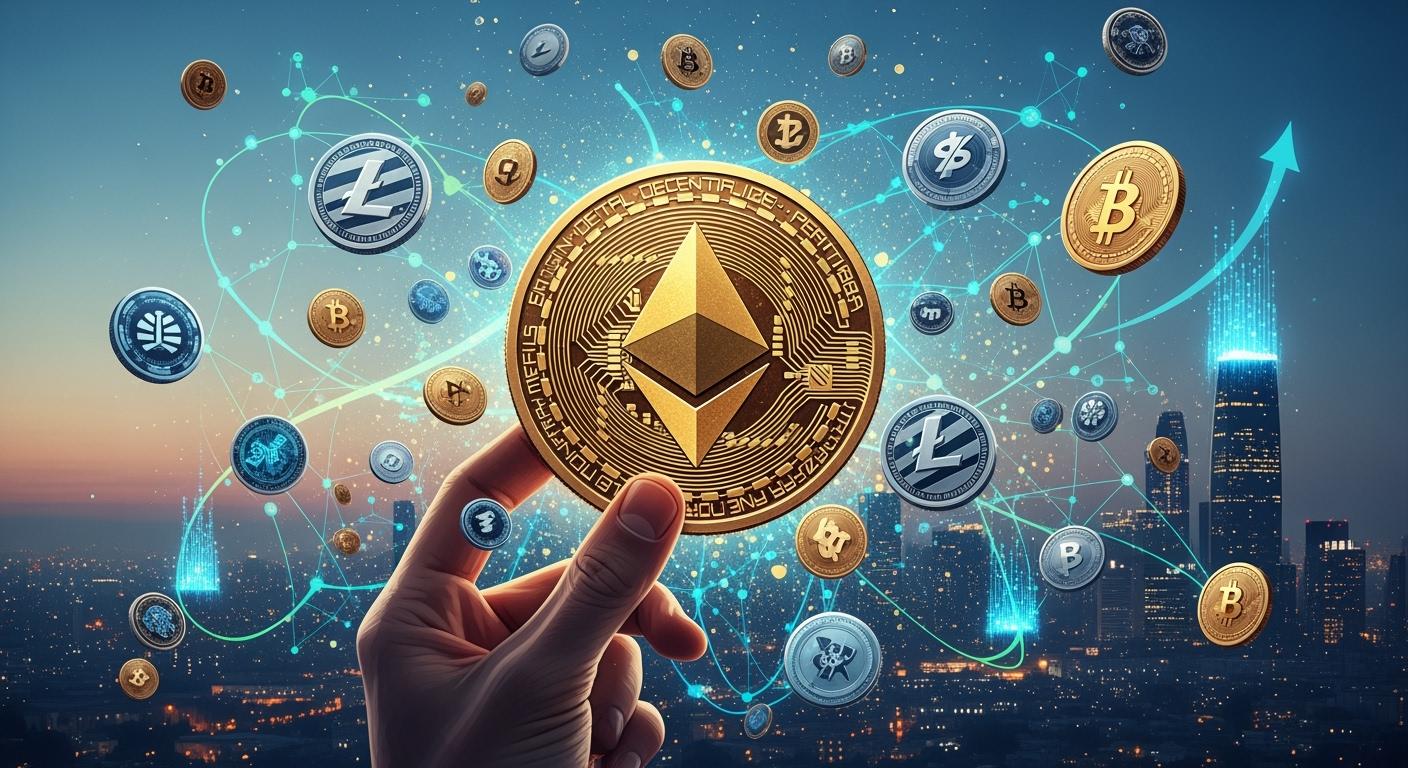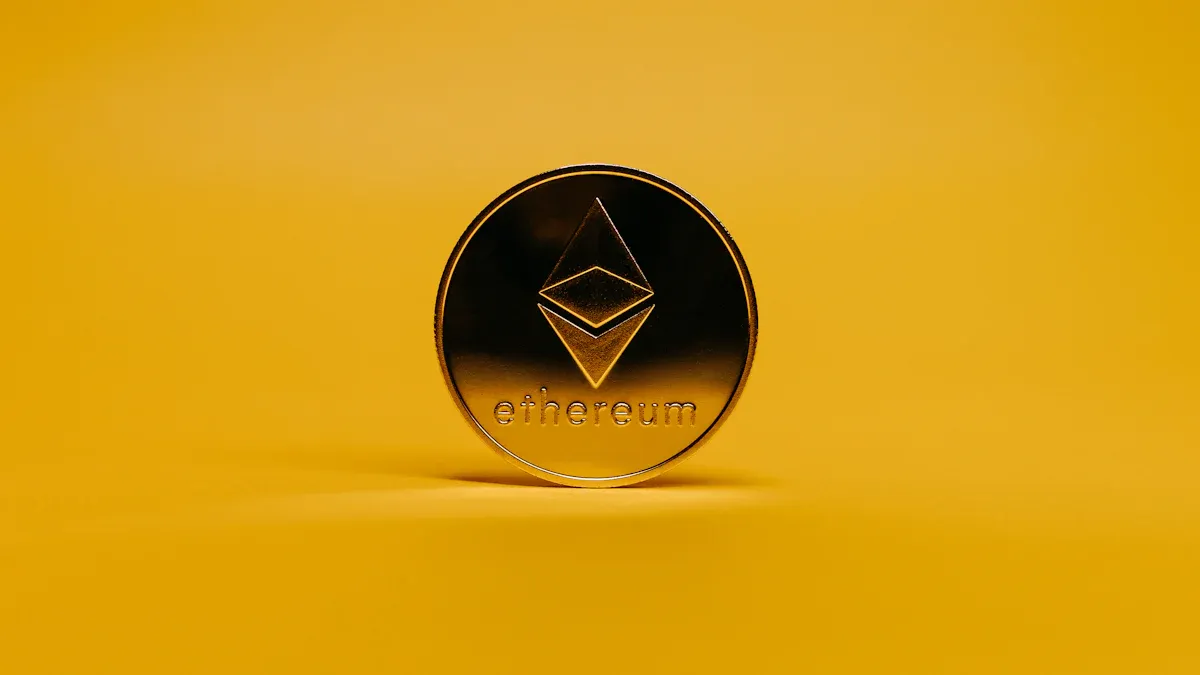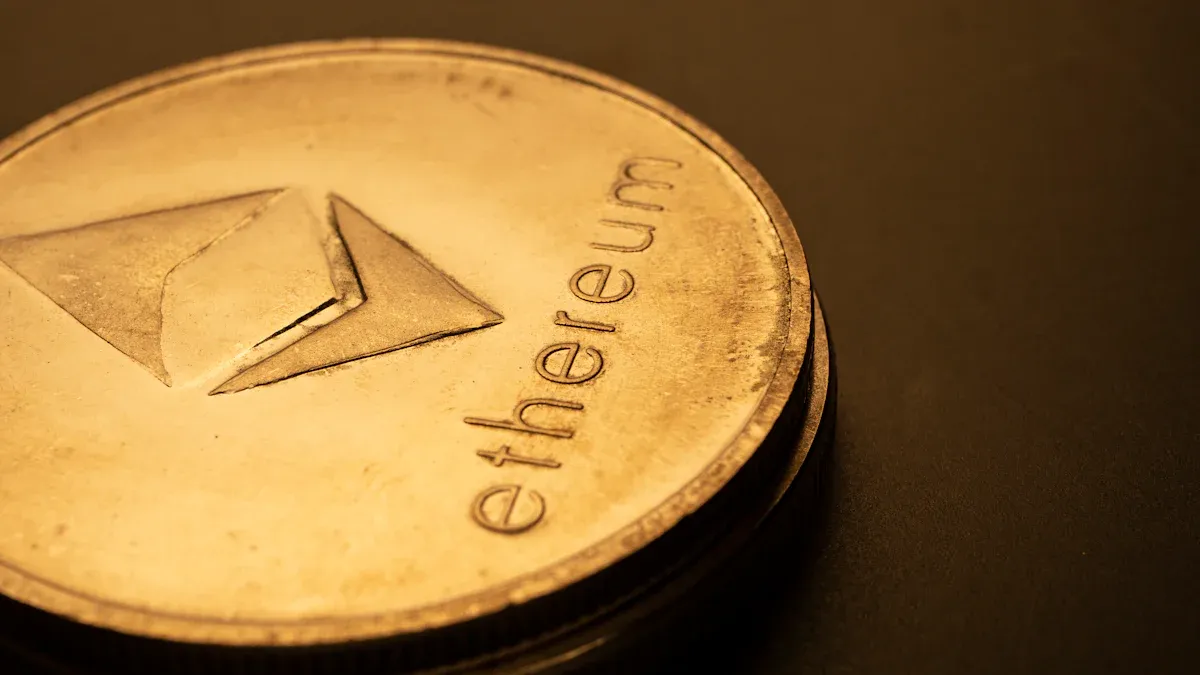What Is Ethereum's Native Cryptocurrency and Its Importance Today
2025-11-25 07:06:04
You might ask what is ethereum's native cryptocurrency. The answer is ether (ETH). Ether runs the Ethereum blockchain, and people use it to pay for transactions and smart contracts. Developers need ether to create new tools and services. In 2024, more than 31,869 developers and 127 million wallets utilize ether on Ethereum.
| Metric | Value |
|---|---|
| Active Developers | 31,869+ |
| Active Ethereum Wallets | 127 million |
Ether allows you and many others to join a growing digital world.
What Is Ethereum's Native Cryptocurrency?

Ether (ETH) Overview
You might ask what ethereum's native cryptocurrency is. The answer is ether, or ETH. Ether is the main digital coin for ethereum. You need ETH to use the ethereum network. You pay with ETH when you send money or use smart contracts. You also need ETH for decentralized apps. Ether is not like other digital coins. You do not just keep ETH as an investment. You use ETH to make ethereum work.
Here is how ether is different from other cryptocurrencies:
| Characteristic | Ether (ETH) | Other Cryptocurrencies |
|---|---|---|
| Native Currency | Yes, for the Ethereum platform | Varies (e.g., Bitcoin for Bitcoin network) |
| Smart Contracts Support | Yes, enables smart contracts and dApps | Limited or none (e.g., Bitcoin) |
| Transaction Fee Payment | Required in Ether, consists of base fee and tip | Varies, often in the native currency |
| Validator Incentives | Yes, through transaction fees and rewards | Varies, often through mining rewards |
| Use in Decentralized Finance (DeFi) | Yes, facilitates DeFi applications | Limited, varies by cryptocurrency |
Ether is more than just a coin. It helps everything run on ethereum. ETH lets you pay for things and use new tools made by developers.
Role of Ether in Ethereum
You use ether for many things on ethereum. ETH is the main digital coin for the network. You pay fees with ETH. These fees have a base part that gets burned. There is also a tip for the person who handles your transaction. You need ETH to use smart contracts and apps. Without ETH, you cannot use most things on ethereum.
Here are the main jobs of ETH in ethereum:
- ETH lets you pay for things on the network.
- You use ETH to make and use smart contracts.
- ETH helps run decentralized apps, called dApps.
ETH is not just for paying. It is the base for everything you do on ethereum. When you look at ETH and other coins, you see ETH does more and is used by more people. ETH helps run apps and transactions. Bitcoin is mostly used as a way to save money.
| Feature | Ethereum (ETH) | Bitcoin (BTC) |
|---|---|---|
| Primary Use Case | Powers decentralized applications and transactions | Store of value |
| Circulation Patterns | Higher turnover due to operational needs | Lower turnover, primarily hoarded |
| Network Activity | Supports DeFi, NFTs, and tokenized assets | Limited programmability, investment-focused |
| Supply Characteristics | Approximately 25% locked in staking or ETFs | Increasingly migrating to long-term storage |
| Investor Behavior | Active participation in network transactions | Viewed as digital gold, macro hedge asset |
Tip: If you want to do more than just hold coins, you need ETH. ETH lets you use smart contracts, DeFi, and NFTs.
Now you know what ethereum's native cryptocurrency is. ETH is the main coin for ethereum. You use it for transactions, smart contracts, and apps. ETH is the base of the ethereum network. When you have ETH, you can join a growing digital world.
How Ether (ETH) Powers Ethereum

Gas Fees and Transactions
You use eth every time you make a transaction on ethereum. Eth acts as the fuel for the network. When you send money, swap tokens, or buy NFTs, you pay a small fee called gas. This fee goes to validators who process your transaction and keep ethereum secure. Gas fees change based on how busy the network is and how complex your action is.
Here are some average gas fees you might see in 2024:
- Basic transfers cost as little as $0.04.
- Token swaps average around $0.11.
- NFT sales usually have a fee of $0.19.
- Bridging assets costs about $0.04.
- On-chain borrowing costs around $0.09.
When gas fees drop, you and other users become more active. Lower costs make it easier to use ethereum for daily tasks. Sometimes, when many people use the network at once, gas fees rise. This happened during big events like the ICO boom, DeFi summer, and NFT mania. High fees can slow down activity, but low fees help the network grow.
Tip: You can speed up your transaction by paying a higher gas fee. Validators will process your transaction faster if you offer more eth as an incentive.
Smart Contracts and dApps
Eth does more than pay for transactions. You need eth to run smart contracts and decentralised applications on ethereum. Smart contracts are programs that run exactly as written. They let you make deals, trade, or use services without a middleman. Decentralised applications, or dApps, use these smart contracts to offer games, finance tools, and more.
The ethereum network uses the Ethereum Virtual Machine (EVM) to run these programs. You pay gas fees in eth for every action a smart contract takes. This system keeps the network safe and fair. It also stops spam and rewards validators for their work.
| Aspect | Explanation |
|---|---|
| Smart Contracts | Let you make secure deals without a central authority. |
| Programming Languages | Most smart contracts use Solidity or Vyper. |
| EVM Functionality | Runs code in a safe space, away from your device. |
| Gas Fees | You pay in eth for every step a contract takes. |
| Turing Completeness | Ethereum can handle complex tasks, not just simple payments. |
You need eth to use decentralised applications. Every time you interact with a dApp, you pay a small fee in eth. This makes eth the heart of ethereum. Without eth, smart contracts and decentralised applications would not work.
ETH in Today's Crypto World
Staking and Network Security
When you stake eth, you help keep ethereum safe. Validators check transactions and suggest new blocks. Each validator must lock up 32 eth as a deposit. If a validator cheats, they can lose their eth. This rule keeps validators honest and stops attacks. Staking means you care about ethereum’s safety. You can earn rewards if you follow the rules. If you break them, you lose some eth. This proof-of-stake system makes ethereum safer and uses less energy.
- Validators can lose their eth if they cheat.
- Honest validators get rewards for their work.
- Staking eth helps keep the blockchain safe.
Store of Value and Trading
Some people use eth to save money, like bitcoin. In the last five years, bitcoin did better than ethereum. But since 2020, ethereum has done well too. Many call bitcoin “digital gold” because it is good for saving. Ethereum is similar, but not as big as bitcoin yet. You can trade eth on many websites. The most common trade is ETH for US dollars. Eth is one of the top traded cryptocurrencies.
- ETH/USD is the most traded pair for eth.
- You can buy and sell eth on many websites.
Importance in DeFi and NFTs
Eth is not just for trading or saving. Ethereum supports thousands of tokens and over $300 billion in value. In DeFi, you use eth as collateral, pay fees, join pools, and earn rewards.
| Use Case | Description |
|---|---|
| Collateral in DeFi | You use eth as collateral in DeFi apps like Aave and MakerDAO. |
| Gas Fees | You pay fees with eth on ethereum. |
| Access to Liquidity | Holding eth lets you join pools and earn rewards. |
| Yield Farming | You can stake eth in DeFi to earn more eth. |
You also need eth to buy, sell, or make NFTs. Most NFTs use ERC-721 or ERC-1155, which makes each one special. To buy an NFT, you get eth, put it in your wallet, and use it to pay.
The ethereum network has thousands of tokens and over $300 billion in value.
Eth is at the center of DeFi and NFTs. This makes ethereum a leader in digital money.
You see Ether (ETH) as the heart of Ethereum. ETH powers smart contracts, DeFi, and NFTs. You use ETH for transactions and staking. ETH supports new upgrades like Fusaka, making Ethereum faster and safer.
- Ethereum lets you use automated financial tools without banks.
- ETH helps you mint NFTs and join DeFi apps.
- Staking ETH rewards you and keeps the network secure.
| Prediction Summary | Source |
|---|---|
| ETH will grow with DeFi, smart contracts, and upgrades. | Finder Report |
| Ethereum is key for tokenizing assets and stablecoins. | Finder Report |
| 42% of experts say ETH is a buy now. | Finder Report |
You help shape the future of digital money when you use Ether.
FAQ
What can you do with Ether (ETH)?
You can pay for transactions, use smart contracts, and join decentralized apps. You can also stake ETH to help secure the network and earn rewards. ETH lets you buy NFTs and use DeFi tools.
How do you get Ether (ETH)?
You can buy ETH on crypto exchanges like Coinbase or Binance. You can also earn ETH by staking or providing services. Some people receive ETH as payment for work or selling NFTs.
Why do you pay gas fees with ETH?
You pay gas fees with ETH to use the Ethereum network. These fees reward validators and keep the network safe. Gas fees also stop spam and make sure only real transactions happen.
Is Ether (ETH) safe to use?
ETH is safe if you use trusted wallets and exchanges. Always keep your private keys secure. Never share your recovery phrase. Use two-factor authentication for extra protection.